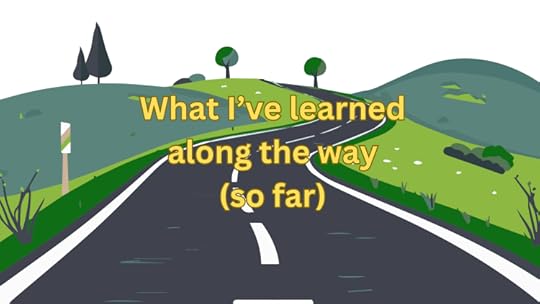The Business of Writing
by Barb, in Key West at last!
Welcome to the sixth and last of my posts about what I’ve learned in my fourteen years as a published author. This post is about the Business of Writing.
I’ve spent most of those years as a traditionally published author and I’m writing from that experience, so view what I have to say from that perspective.
And by the way, I’m astonished that after twenty years we’re somehow seeing instances of traditional versus indie bomb-throwing. It reminds me of the working mom versus stay-at-home mom tempests my younger self was subjected to. These conversations always seem to come from a defensive crouch. Do what’s right for you. Make the most of the choices you have. Let others make the best choice for themselves. Live and let live.

For years, when I’ve talked about the publishing business, I’ve used air quotes. The publishing “business,’ because if you come to it with experience in other industries, publishing will be unrecognizable to you as a business.
[After this, I wrote several paragraphs about the ways the publishing business is insane and the reasons why I think that is so, but I’ve scrapped them. That’s not the point.]
Here’s the point. Author, you are on your own. Whether you are traditionally or independently published, it is down to you. You are running your business and nobody cares about it as much as you do.
Will agents and editors give you professional advice and help you grow as a writer? Yes, they will. But they are inherently conflicted.
Your agent works for you. But unless he or she is a very bad agent, he is doing a lot more business with your publisher than he is doing with you. I’m not suggesting agents are unethical. I am merely saying their bread is buttered on both sides of these transactions and you had best bear that in mind.
Your editor and publisher work in a shrinking industry under ever worse price and margin pressure. This makes them reflexively conservative. If you are even modestly successful, they will want you to do more of what you have been doing. Because doing something else is risky and businesses that are surviving under threat don’t take risks.
If you are lucky, your agent and your publisher are your partners in the development of your business. Your junior partners.
You come into this business as a supplicant. “Please, please like my work.” “Please please publish my work.” So it’s easy to see how, having come to the business as supplicants, writers have trouble immediately shifting into the role of partner. Senior partner. But remember way back in the first post in this series when I said Voice is confidence. Having a fulfilling career, the one you want, is all about confidence, too.
It’s hard to have confidence when you’re dealing with an agents and editors who have way more experience than you, and who have the power to say no. But if you are going to spend your time writing fiction, for goodness sake, write what you want. Have the career that you want. Will you fail? Probably and often. But trying and failing will leave you happier and more satisfied than toiling away at something that is difficult, that you don’t enjoy, with compensation that is far from guaranteed. If you going to indulge yourself by writing, indulge yourself by doing what you want.
Readers: Do you have questions about the publishing business? Barb has nothing to lose at this point, so she’s likely to give you a candid answer.



